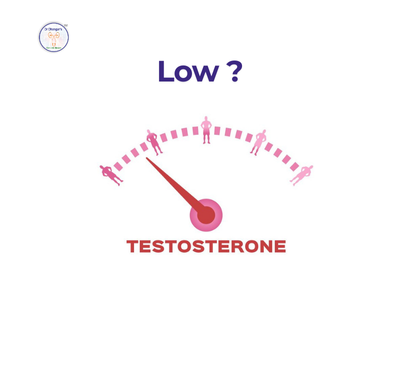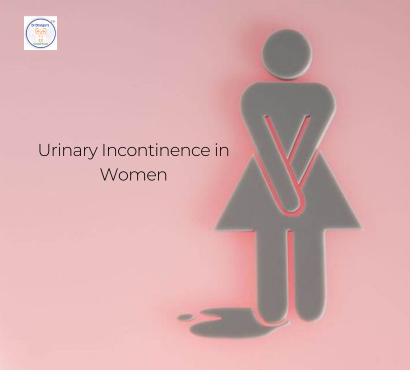Testosterone is a key hormone responsible for various functions in the male body, including muscle growth, energy levels, sexual health, and overall well-being. While testosterone naturally declines with age, some men experience significantly lower levels due to medical conditions, poor lifestyle choices, or environmental factors.
Low testosterone levels, also known as low-T or hypogonadism, can lead to fatigue, reduced libido, mood disturbances, and even increased risk of chronic diseases. Fortunately, there are several ways to manage and boost testosterone levels effectively. In this comprehensive guide, we’ll discuss the causes, symptoms, and best management strategies for low testosterone.
What Is Testosterone and Why Is It Important?
Testosterone is the primary male sex hormone produced mainly in the testicles. It plays a crucial role in various bodily functions, such as:
✔️ Regulating libido and sexual function
✔️ Promoting muscle mass and strength
✔️ Maintaining bone density
✔️ Influencing fat distribution and metabolism
✔️ Supporting red blood cell production
✔️ Affecting mood and cognitive function
Women also produce testosterone in smaller amounts, and a deficiency can affect their health as well.
Common Causes of Low Testosterone
1. Aging
Testosterone levels naturally decline with age, dropping by approximately 1% per year after 30.
2. Lifestyle Factors
Unhealthy habits can significantly impact testosterone production, including:
- Poor diet (low in protein, healthy fats, and essential nutrients)
- Lack of physical activity, especially resistance training
- Chronic stress, which increases cortisol levels (a hormone that lowers testosterone)
- Excessive alcohol consumption and smoking
- Lack of sleep (testosterone is mainly produced during deep sleep cycles)
3. Underlying Medical Conditions
Several health conditions can lead to low-T, such as:
- Obesity (excess body fat increases estrogen levels and suppresses testosterone)
- Diabetes (insulin resistance can interfere with testosterone production)
- Hypothyroidism (thyroid hormones play a role in hormone regulation)
- Chronic kidney or liver disease
- Testicular injury or infections
4. Medications & Treatments
Certain medications can suppress testosterone production, including:
- Opioids and corticosteroids
- Chemotherapy and radiation therapy
- Hormonal treatments for prostate cancer
If you experience persistent symptoms of low testosterone, it is advisable to consult a doctor for proper diagnosis and treatment.
Signs and Symptoms of Low Testosterone
Low testosterone can affect physical, emotional, and mental health. Common symptoms include:
✔️ Low energy levels and fatigue
✔️ Decreased muscle mass and strength
✔️ Increased body fat, especially around the abdomen
✔️ Reduced libido and erectile dysfunction
✔️ Mood swings, depression, or irritability
✔️ Difficulty concentrating and memory problems
✔️ Hair thinning or loss
✔️ Weaker bones and higher risk of fractures
If you notice these symptoms persistently, it’s essential to seek medical evaluation.
How to Manage Low Testosterone Levels Effectively
1. Optimize Your Diet
Eating the right foods can help boost testosterone levels naturally. Include:
🍳 Protein-rich foods (chicken, fish, eggs, and dairy)
🥑 Healthy fats (avocados, nuts, olive oil, and fatty fish)
🥦 Zinc-rich foods (oysters, spinach, pumpkin seeds)
🍫 Magnesium-rich foods (dark chocolate, nuts, and legumes)
🍋 Vitamin D sources (sunlight exposure, fortified dairy products)
Avoid processed foods, excess sugar, and trans fats, which can negatively impact testosterone production.
2. Engage in Strength Training and Exercise
Regular resistance training (weight lifting) and high-intensity interval training (HIIT) can significantly boost testosterone levels. Aim for:
🏋️♂️ Strength training (3–4 times a week)
🚴 Cardio exercises (moderate intensity for heart health)
🧘♂️ Yoga or stretching (for stress relief and flexibility)
3. Improve Sleep Quality
Testosterone production is highest during deep sleep cycles. Ensure:
💤 7–9 hours of quality sleep per night
🌙 A dark, quiet, and cool bedroom
📵 No screens (TV, phone) before bed
4. Reduce Stress and Manage Cortisol Levels
Chronic stress increases cortisol, which lowers testosterone. To manage stress:
🧘 Practice meditation or deep breathing exercises
🏞️ Spend time outdoors
🤝 Engage in social activities
5. Maintain a Healthy Weight
Obesity is linked to lower testosterone levels due to excess fat converting testosterone into estrogen. Losing even 5–10% of body weight can help boost hormone production.
6. Limit Alcohol and Avoid Smoking
- Excessive alcohol impairs testosterone synthesis. Limit intake to 1–2 drinks per day.
- Smoking affects blood circulation, which can impact testosterone levels and sexual health.
7. Consider Testosterone Replacement Therapy (TRT)
For men with clinically low testosterone levels, doctors may recommend testosterone replacement therapy (TRT) in the form of:
💉 Injections
🩸 Patches
💊 Gels or pills
However, TRT should only be taken under medical supervision, as it may have side effects such as blood clots, prostate issues, or fluid retention.
Final Thoughts
Low testosterone levels can significantly impact a man’s physical, emotional, and sexual health. However, with lifestyle changes, a healthy diet, regular exercise, and proper medical intervention, it is possible to maintain optimal testosterone levels and overall well-being.
If you suspect low testosterone, consult a urologist or endocrinologist for a proper diagnosis and personalized treatment plan. Early intervention can help you regain energy, improve mood, and enhance quality of life.
FAQs
1. Can diet alone increase testosterone levels?
Yes, a healthy diet rich in protein, healthy fats, zinc, and vitamin D can support testosterone production. However, if levels are severely low, medical intervention may be necessary.
2. Is testosterone replacement therapy (TRT) safe?
TRT is generally safe when administered under medical supervision, but it may have side effects such as blood clot risks, prostate enlargement, and sleep apnea. Always discuss risks with your doctor.
3. At what age should I get my testosterone levels checked?
Men experiencing symptoms of fatigue, low libido, weight gain, or mood changes should consider getting tested. Testosterone naturally declines after age 30, but symptoms vary from person to person.




